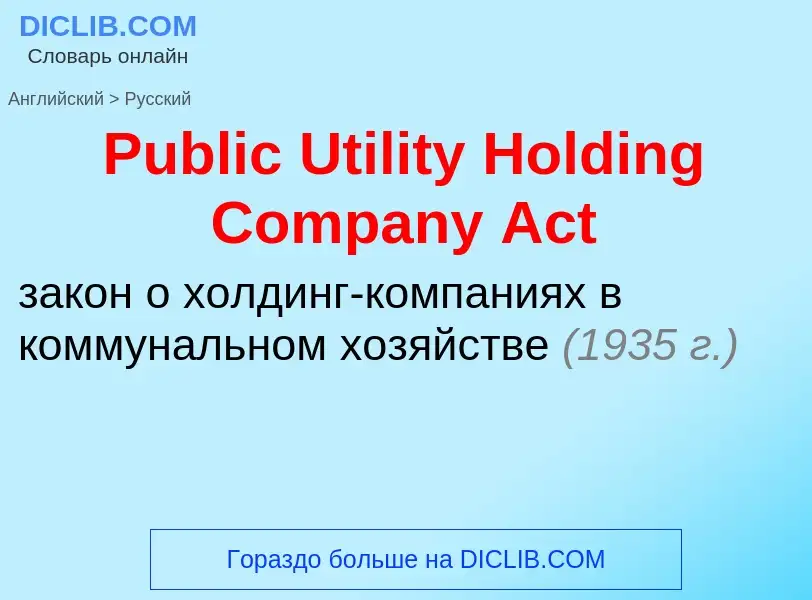Перевод и анализ слов искусственным интеллектом ChatGPT
На этой странице Вы можете получить подробный анализ слова или словосочетания, произведенный с помощью лучшей на сегодняшний день технологии искусственного интеллекта:
- как употребляется слово
- частота употребления
- используется оно чаще в устной или письменной речи
- варианты перевода слова
- примеры употребления (несколько фраз с переводом)
- этимология
Public Utility Holding Company Act - перевод на русский
общая лексика
коммунальное предприятие
предприятие общественного пользования
электростанция общего назначения
гидрология
водопроводная станция
общая лексика
коммунальные сооружения, предприятия
коммунальные услуги
коммунальные сооружения
[pʌblik'sə:viskɔ:pə'reiʃ(ə)n]
американизм
корпорация общественного обслуживания
2) коммунальные сооружения
3) см. utility 5
Википедия
The Public Utility Holding Company Act of 1935 (PUHCA), also known as the Wheeler-Rayburn Act, was a US federal law giving the Securities and Exchange Commission authority to regulate, license, and break up electric utility holding companies. It limited holding company operations to a single state, thus subjecting them to effective state regulation. It also broke up any holding companies with more than two tiers, forcing divestitures so that each became a single integrated system serving a limited geographic area. Another purpose of the PUHCA was to keep utility holding companies engaged in regulated businesses from also engaging in unregulated businesses. The act was based on the conclusions and recommendations of the 1928-35 Federal Trade Commission investigation of the electric industry. On March 12, 1935, President Franklin D. Roosevelt released a report he commissioned by the National Power Policy Committee. This report became the template for the PUHCA. The political battle over its passage was one of the bitterest of the New Deal, and was followed by eleven years of legal appeals by holding companies led by the Electric Bond and Share Company, which finally completed its breakup in 1961.
On August 26, 1935, President Franklin D. Roosevelt signed the bill into law.
The Energy Policy Act of 2005 repealed the PUHCA.





